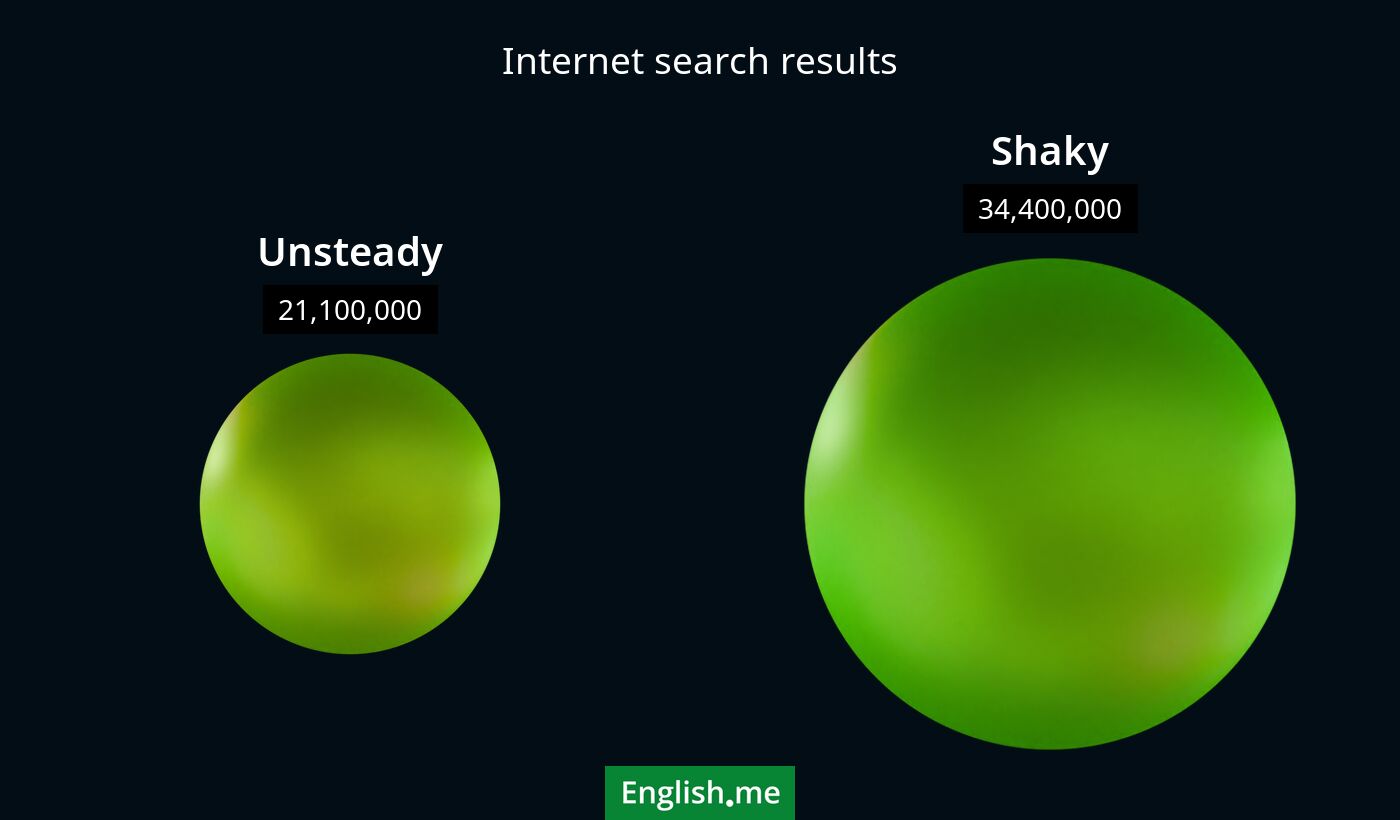"Unsteady" vs "shaky": words that wobble
Reviewed and edited by  Lloyd Cooper 14/02/2025, 20:06
Lloyd Cooper 14/02/2025, 20:06
English.me team member

 What is similar?
What is similar?
Both "unsteady" and "shaky" describe a lack of stability or firmness. They are often used to depict physical movements or objects that are not stable, and both can be applied metaphorically to situations or conditions that are insecure or unreliable.
 What is different?
What is different?
"Unsteady" generally refers to something that lacks steadiness or is prone to wobbling, often relating to movement or balance. It implies a lack of stability that may be temporary or due to external factors. "Shaky" often conveys trembling or quivering, possibly due to weakness, fear, or nervousness. Additionally, "shaky" can suggest that something is unreliable, insecure, or not well-founded, such as a shaky plan or a shaky economy.
 Which one is more common?
Which one is more common?

 Examples of usage
Examples of usage
Unsteady- She took an unsteady step after spraining her ankle.
- The ladder felt unsteady beneath his feet.
- His unsteady handwriting made the note hard to read.
- His hands were shaky from the cold.
- The table is shaky and needs to be repaired.
- She gave a shaky laugh, trying to hide her fear.

 English
English español
español française
française italiano
italiano deutsche
deutsche 日本語
日本語 polski
polski česky
česky svenska
svenska Türkçe
Türkçe Nederlands
Nederlands